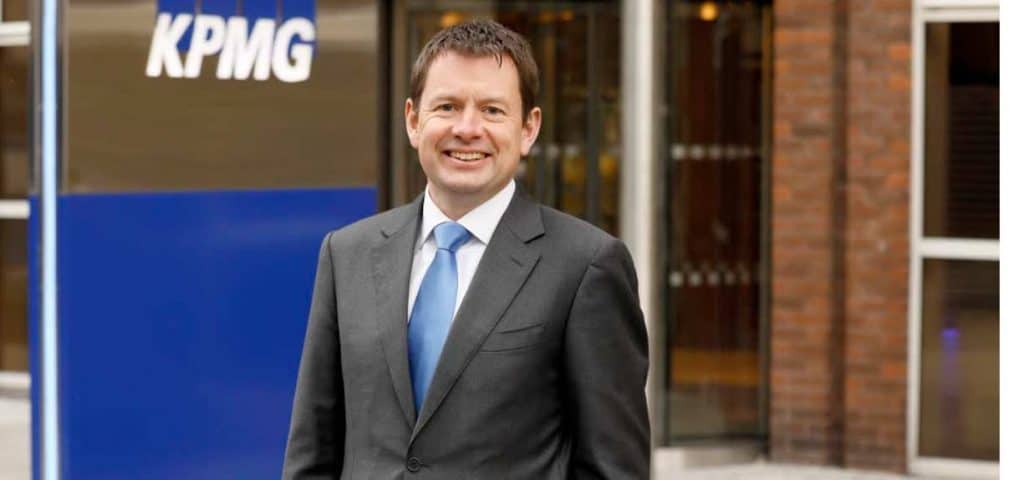Pictured: Seamus Hand, Managing Partner, KPMG in Ireland
Almost half (45 percent) of global executives do not expect to see a return to a ‘normal’ course of business until sometime in 2022, as opposed to nearly one-third (31 percent) who anticipate this will happen later this year
CEOs of the world’s most influential companies are planning what the ‘new reality’ will look like post-pandemic. The 2021 KPMG CEO Outlook Pulse Survey finds that almost half (45 percent) of global executives do not expect to see a return to a ‘normal’ course of business until sometime in 2022, as opposed to nearly one-third (31 percent) who anticipate this will happen later this year. The changes prompted by the pandemic have resulted in one-quarter (24 percent) of CEOs saying that their business model has been changed forever by the global pandemic.
The study conducted by KPMG in February and March of this year asked 500 global CEOs about their response to the pandemic and the outlook over a 3-year horizon. Only one-fifth (21 percent) of businesses are looking to hire talent that works predominantly remotely, which is a significant shift from last year (73 percent in 2020). A vast majority (89 percent) of business leaders are focused on locking in the sustainability and climate change gains their companies have made as a result of the pandemic
Seamus Hand, Managing Partner of KPMG in Ireland said: “It’s really interesting to see in our research how CEOs are thinking about transforming their operating models and further accelerating digital transformation projects as they start to think about the possible return of their employees to an office environment. The pandemic has also acted as a catalyst for many business leaders in looking at the role of their business and its impact on society. Climate change in particular will continue to grow in importance as a leadership issue as businesses address the pressing need for measurable, target based action in this area.”
KEY FINDINGS:
Global CEOs are less likely to downsize physical footprint compared to 6 months ago
The research finds that only 17 percent of global executives are looking to downsize their office space as a result of the pandemic. In contrast, 69 percent of CEOs surveyed in August 2020 said they planned to reduce their office space over 3 years, which demonstrates that either office downsizings have taken place or, as the pandemic has drawn on, strategies have changed.
Global executives remain apprehensive about a fully remote workforce
CEOs are considering what the new reality will look like. Post COVID, only three in 10 (30 percent) of global executives are considering a hybrid model of working for their staff, where most employees work remotely 2–3 days a week. As a result, only one-fifth (21 percent) of businesses are looking to hire talent that works predominantly remotely, which is a significant shift from last year (73 percent in 2020).
ESG continues to climb up the corporate agenda
With COP26 taking place this year and the US re-joining the Paris Accord, 49 percent of CEOs plan to put in place more stringent ESG practices. A vast majority (89 percent) of business leaders are focused on locking in the sustainability and climate change gains their companies have made as a result of the pandemic. Nearly all (96 percent) global executives are looking to upweight their focus towards the social component of their ESG programmes.
Cyber security is now the top concern for CEOs
During lockdown, remote working has become the norm, which poses new data security risks to organisations. As a result, global business leaders identified cyber security as the top concern impacting their growth and operations over a 3-year period. Cyber security was named ahead of regulatory, tax and supply chain concerns.
Government and vaccination rates driving decision-making
Three-quarters (76 percent) of CEOs see government encouragement for businesses to return to ‘normal’ as the prompt for businesses to ask staff to return to the workplace. In addition, 61 percent of global executives said that they will also need to see a successful (over 50 percent of the population vaccinated) COVID-19 vaccine rollout in key markets before taking any action toward a return to offices. When employees can safely return to workplaces, one-fifth of companies (21 percent) are looking to institute additional precautionary measures by asking clients and other in-person visitors to inform them of their vaccination status.

